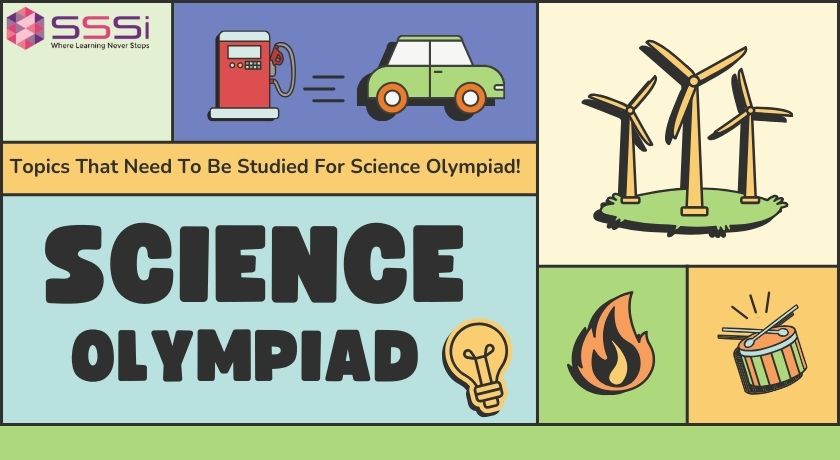In the never-ending race for success and academic competition, Olympiads are an addition to check and challenge the intellect of students. This is also an opportunity for young minds to pour out what they have learned so far. Among the Olympiads conducted for many subjects, the Science Olympiad stands apart for those who have a deep love for this subject. Although the participants will be those who actually want to dive deeper into the subject, still the path of preparation is challenging because of the technical parts involved.
The Science Olympiad is conducted on national as well as international levels. It brings students of the same class into competition with one another based on various scientific disciplines. This is a healthy competition that teaches critical thinking and practical application of theoretical scientific concepts. The syllabus of the exam is largely based on the standard of students for whom the exam is being conducted. However, the horizons of topics do expand further to foster a feeling to study more. In general, the topics that have to be studied are from the disciplines such as biology, chemistry, earth science, general knowledge, etc. This article will help you explore what you should study to call yourself prepared for the Olympiad.
1. Biology
Biology forms a larger chunk of science as whatever species of plants and animals we see around us is studied in biology. Similarly, their interactions, reactions, and anatomy are studied under the name of different sub-disciplines of biology in online classes for the Science Olympiad. Topics related to the environment, that is, ecology and the overall evolution of all species and surroundings, are also covered under biology.
To attempt the questions based on biology in the Science Olympiad, you should study the following:
● Anatomy And Physiology
In topics such as anatomy and physiology, one gets to study the structure and function of living beings. This topic grabs the interest of students. Once they know the internal environment of living bodies, deciphering the cause and cure of diseases also becomes easy for them, as questions about diseases also make up a part of the exam.
● Ecology
To be able to answer any environment-related question in the online science Olympiad, an understanding of ecosystems, food chains and webs, and interrelationships among all is needed. Even the study of birds, known as ornithology, is studied along with this.
● Genetics
The introduction of concepts of genes, inheritance, and expression of traits is made to students in genetics.
● Microbiology
Microbiology studies microorganisms and their processes at the microscopic level, that is, inside the cell and its components.
2. Chemistry
Chemistry houses a spectrum of topics under it. These are inorganic chemistry, organic chemistry, physical chemistry, and analytical chemistry. Inorganic chemistry focuses on chemical elements, reactions, and their properties. Whereas organic chemistry deals with compounds having carbon and other functional groups. Further, in online tuition classes for chemistry, numerical problems based on thermodynamics, kinetics, and chemical equilibrium are covered. Topics of analytical chemistry, such as titration and spectroscopy, can also be the basis for testing students.
3. Physics
Physics forms the foundation of the Science Olympiad. The questions in the Olympiad on physics are not in much detail. The detailed concepts of this subject are covered in Physics Olympiad. Here, in a science Olympiad exam, basics such as Newton’s laws, electricity, magnetism, optics, and heat transfer are covered. Even in these topics, too many technical questions are avoided.
4. Earth And Space Science
The study for the Science Olympiad is incomplete without an understanding of the Earth we live in and the space we want to explore. In this, you should start by understanding the rocks, minerals formed from them, and geological processes that affect these rocks and further lead to fossil formation. To know more about the Earth, topics like plate tectonics and the structure of Earth should be studied.
When space science is concerned, astronomy and meteorology are the topics that are being talked about. Here, you will be made to learn about celestial bodies, stars, their formation, climatic changes, etc. Overall, this subject is also quite interesting. Although it is time-consuming, a piece of basic knowledge is necessary.
5. General Knowledge
Along with the specific subjects and topics mentioned above, online classes for the Science Olympiad also need to focus on the general scientific concepts and recent advances that are taking place. Here, current affairs regarding science and what is going on in the world in the field of science are covered.
Now that you know what you have to study for your online Science Olympiad, have a glimpse of how you have to prepare for it. Studying without direction is of no use.
How To Prepare For The Science Olympiad?
To be well prepared for the Olympiad and excel in it, one needs to have a strategic approach. An organized and well-planned approach to preparation can make it more effective. You should start early to avoid any last-minute hassle. Also, you will have enough time to study each topic thoroughly.
Every student preparing for the Science Olympiad is referring to similar books and topics. Then, what is it that creates differences between different students? It is time management skills. Those who manage their time well by dividing topics according to their importance and dedicating time consistently automatically move ahead in the race. To avoid any confusion, it is better to fix one or two study resources and a single online tuition class and study them again and again rather than running to a new book each time. Now, to test yourself, you should attempt mock tests and the previous year’s questions. This will help you in applying what you have studied so far. Also, time management and accuracy can be practiced with these mock tests.
Conclusion
The purpose of participating in the Science Olympiad should not be to earn medals only. Instead, you should focus on learning as many new things as possible. The knowledge gained here will stay with you for the rest of your academic life. This journey has the potential to instill a lifelong love for science in a person.





